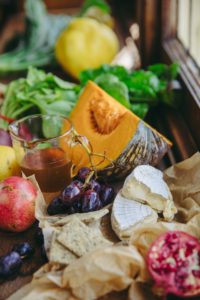The pros and cons of going gluten-free

A growing number of people are avoiding gluten in their diets. In a recent dietary survey conducted by the CSIRO, an estimated 12.1% of Australians were actively avoiding consuming wheat and/or gluten (1). Once obscure and found only in health food and specialty stores, gluten-free products are now widely available in shops, and more and more restaurants and cafes are adding gluten-free options to their menus.
So if you’re considering “going gluten-free”, you’re certainly not alone. It’s commonly believed that a gluten-free diet is healthier, but is this necessarily the case?
What is gluten?
Gluten is a protein found in wheat, rye, barley and oats. In addition to obvious food sources, such as breads, pastas, and baked goods, gluten may be present in a wide variety of processed and packaged foods, including soups, sauces and snack foods.
Who should avoid gluten?
Approximately 1 in 70 Australians has coeliac disease (2), an autoimmune condition in which gluten ingestion results in gastrointestinal inflammation and malabsorption of nutrients. Common symptoms of coeliac disease include digestive issues such as bloating, cramping, and pain, diarrhoea or constipation, fatigue, iron deficiency anaemia, unexplained weight loss, failure to thrive in young children, recurrent mouth ulcers, joint aches and pains, and skin rashes, although some people with the disease may experience no symptoms at all. In persons diagnosed as coeliac, strict avoidance of all gluten in the diet is the only available treatment option. But if you don’t have a diagnosis of coeliac disease, are there any reasons to avoid gluten?

Gluten sensitivity
In recent years, a condition referred to as “gluten sensitivity” or “non-coeliac gluten sensitivity” has gained increasing recognition, although there is some evidence that many symptoms attributed to gluten sensitivity may actually be being caused by other dietary factors, such as FODMAPS (3). Nevertheless, researchers acknowledge a spectrum of gluten sensitivity, and that some people who do not have coeliac disease may nevertheless experience negative symptoms on gluten ingestion (4). There is also research evidence indicating that people with certain medical conditions, particularly autoimmune conditions such as rheumatoid arthritis, may respond well to a gluten free diet (5). Anecdotally, many clients in clinic also report that they simply “feel better” when avoiding gluten.
Avoiding gluten
So if you believe that gluten could be causing or contributing to your symptoms, should you go gluten-free? It’s best to book a consultation with your GP before you change your diet. Pathology testing is one component of coeliac disease diagnosis, and this should ideally be ordered when you are still consuming gluten or results may be inconclusive. In addition, symptoms commonly attributed to gluten sensitivity can sometimes be caused by more serious medical conditions. Bowel cancer, for example, may cause symptoms similar to coeliac disease, such as digestive discomfort, changes in bowel habits, and iron deficiency anaemia and fatigue. If detected early, 99% of bowel cancers can be successfully treated (6), so it’s important to consult with your health care practitioner to discuss all possible causes for your symptoms.
Once you have a diagnosis of coeliac disease or you’ve decided to exclude gluten from your diet for another reason, it can initially be confusing to work out what you can and can’t eat. A naturopath, nutritionist or dietician can work with you at this stage, to support you in planning a diet that will not only exclude gluten, but also ensure that you’re eating a broad enough range of foods to meet your current and ongoing nutritional needs for optimum health and wellbeing.

Why you shouldn’t avoid gluten
So if you’re feeling well and have no common symptoms that are related to gluten sensitivity, what’s the harm in avoiding it in any case? I recommend to my clients that they not avoid gluten unnecessarily, for the following reasons:
Firstly, strictly following a gluten-free diet can be mentally and emotionally challenging. Many gluten-free clients report that they struggle with the diet, finding it complex, restrictive and socially-isolating. Gluten can be “hidden” in many foods, even in items such as medications, supplements and toothpaste, for example, and it’s no fun to be the only person in a group who can’t share a dish with friends in a restaurant.
Secondly, gluten-free foods can be very expensive. It’s not uncommon for gluten-free bread, for example, to cost 2-4 times more than a regular, gluten-containing loaf. If your budget is limited, purchasing gluten-free foods could really reduce the funds you have available for other healthy food options.
Thirdly, and contrary to popular belief, gluten-free foods are not necessarily healthier. In fact, the opposite may be the case, with gluten-free substitutes for breads, pastas and baked goods commonly containing ingredients such as tapioca, maize and potato starch, and rice flour, which are low in vital nutrients such as B vitamins, magnesium and protein. In addition, gluten-free foods such as breads are less likely to be fortified with nutrients such as folate and iron than are their gluten-containing counterparts; these nutrients are particularly important for women of child-bearing age who are pregnant or trying to conceive. Gluten-free foods are also commonly low in fibre, which is vital for bowel health and function. Ironically, a low fibre diet may cause the digestive symptoms that people attribute to gluten sensitivity. In addition, low fibre foods are less filling than high fibre foods, which can cause us to overeat. There is some evidence that people who regularly consume gluten-free versions of processed foods are more likely to gain weight, as these foods can be higher in kJ and sugar than gluten-containing versions of the same products.

What to eat on a gluten-free diet?
If you do need or choose to avoid gluten in your diet, firstly aim to replace gluten-containing grains with healthy, gluten-free whole grain alternatives, such as brown rice, quinoa, and buckwheat. Try some of the more unusual gluten-free grains too, such as amaranth and millet. The remainder of your gluten-free diet should be focussed on healthy, whole, plant based foods rather than processed gluten-free food products. Foods such as fresh, organic fruits and vegetables, nuts and seeds, and beans/peas/lentils, in addition to gluten free whole grains, can be enjoyed in abundance. Together with moderate amounts of free-range eggs, dairy products (especially fermented dairy products, such as kefir or yoghurt), and fatty fish such as salmon, sardines or mackerel, these foods will provide a strong nutritional foundation for your physical and mental health and wellbeing. Be sure to enjoy plenty of fresh and dried herbs and spices, and healthy fats such as extra virgin olive oil as well.
The Co-op stocks all of these healthy whole foods, many of which can be purchased in bulk, and also offers ready to eat gluten-free products, such as locally produced Peter’s bread, and the Orgran range of certified gluten-free products. With everything from lasagne sheets to chocolate muffin mix available in the Orgran range, these foods are really fun for an occasional yummy treat. For optimum health and wellbeing, however, they shouldn’t make up a large part of your gluten-free diet.
Photos Maja Baska
One of the Co-op’s in store practitioners, Sonya Byron, is a naturopath and yoga teacher in clinical practice at Lower Mountains Health & Healing in Blaxland. Prior to her career in natural health, she earned her living as the owner/farmer of Good Karma Farm, a sustainable two-acre organic farm producing 60 different vegetable and herb crops. She believes that fresh, healthy, home grown food is one of the foundations of good health, and she’s passionate about empowering people to care for their health (and to save money, time and the planet in the process) by learning how to grow and preserve their own food, and how to make their own simple herbal and nutritional remedies for common health complaints. For further information, visit Sonya Byron Plant Medicine at sonyabyron.com.au

(The information in this article is for educational purposes only and is not intended as a substitute for health care advice. Please consult your friendly local naturopath, herbalist or other health care practitioner for personalised advice, particularly if you have a diagnosed medical condition or take pharmaceutical medications).
References
1. https://www.sbs.com.au/topics/voices/health/article/2016/09/26/one-three-australians-avoid-gluten-dairy-or-meat-csiro
2. https://www.coeliac.org.au/s/coeliac-disease
3. Husby, S.; Murray, J. (2014). Gluten Sensitivity: Celiac Lite versus Celiac Like. The Journal of Pediatrics, 164(3), 436–438.
4. Sapone, A.; Bai, J.; Ciacci, C.; Dolinsek, J.; Green, P.; Hadjivassiliou, M.; Kaukinen, K; Rostami, K.; Sanders, D; Schumann, M.; Ullrich, R.; Villalta, D.; Volta, U; Catassi, C.; Fasano, A. (2012). Spectrum of gluten-related disorders: consensus on new nomenclature and classification. BMC Medicine, 10(1), 13–0.
5. Hafström I, Ringertz B, Spångberg A, von Zweigbergk L, Brannemark S, Nylander I, Rönnelid J, Laasonen L, Klareskog L. A vegan diet free of gluten improves the signs and symptoms of rheumatoid arthritis: the effects on arthritis correlate with a reduction in antibodies to food antigens. Rheumatology (Oxford). 2001 Oct;40 (10):1175-9.
6. https://www.canceraustralia.gov.au/about-us/news/early-detection-colorectal-cancer-results-almost-100-patient-survival


